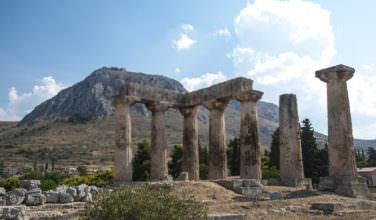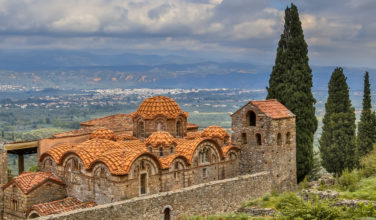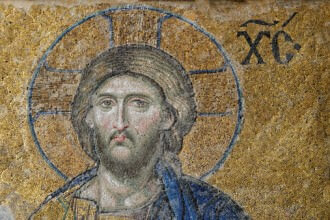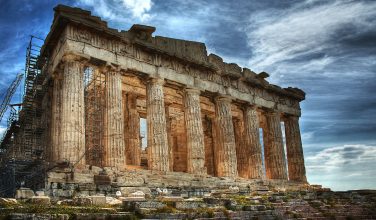All About Ibycus – Poet of Ancient Greece
Comments Off on All About Ibycus – Poet of Ancient Greece
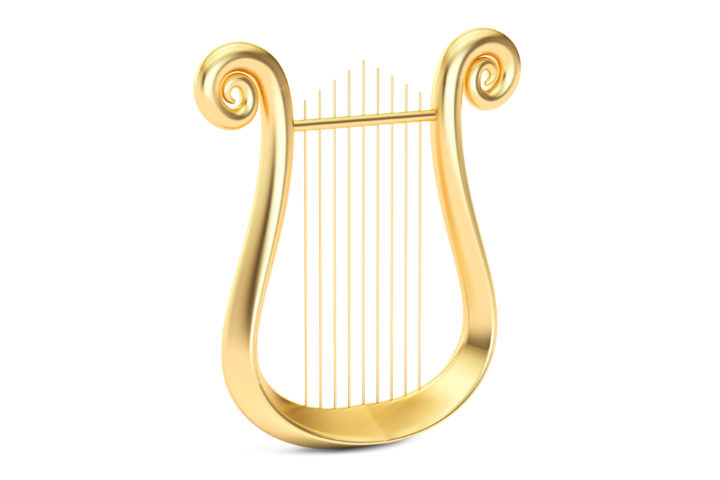 The Ancient Greeks were known for their artistic and literary abilities. Among the talents that many Ancient Greeks possessed, poetry was one of them. Ibycus is a poet from Ancient Greece who specialized in a style known as “Lyric Poetry”, which was often set to music played on an ancient instrument called a lyre. Here’s a look at who Ibycus was, as well as some remarks on his works:
The Ancient Greeks were known for their artistic and literary abilities. Among the talents that many Ancient Greeks possessed, poetry was one of them. Ibycus is a poet from Ancient Greece who specialized in a style known as “Lyric Poetry”, which was often set to music played on an ancient instrument called a lyre. Here’s a look at who Ibycus was, as well as some remarks on his works:
Life of Ibycus
Ibycus was a Greek lyric poet who became increasingly popular in the 6th century BC. He is among the nine lyric poets that were listed in the 3rd and 2nd centuries BC by Hellenistic Alexandria scholars. Although Ibycus had a comfortable life at his home Magna Graecia, Italy, he left there to live a wandering life.
Ibycus went to live in Samos and worked for the tyrant Polycrates. He spent most of his time working at the court. Ibycus met his death while living in Corinth when robbers attacked him. Before his death, it is said that he asked the cranes that were flying overhead to avenge his death. After a few days, while at the theater in Corinth, the robbers saw the cranes and one of them referred to them as the avengers of Ibycus prompting the authorities to arrest them.
Works of Ibycus
Ibycus was a lyric poet best known for love poetry. Ibycus and Stesichorus both wrote poems devoted to mythical narratives making it difficult for the early scholars to distinguish between the works of the two poets. Currently, only a few of his fragments have survived. Most of his work is available as quoted by other ancient writers, or in papyri discovered in Egypt.
Ibycus wrote mythological storytelling and personal love poems. He learned fantastic storytelling from Stesichorus. His capacity to write love poems was derived from the tradition of the Eastern Greeks. These love poems expressed homosexual feelings as the writer expressed his passion for a young man in the same social status.
Given that most of his work demonstrated great love and sensitivity, he was regarded as one of the greatest poets in this genre. From his work, it is clear that he feared to fall in love. Most scholars believe he had a strong love for boys. He wrote choral poetry, and his poems were performed on religious and other important occasions.
Example of His Work
Fragment 286 is a piece of a poem he wrote for his lover, Euryalus. Atheneus, a famous Greek rhetorician and grammarian, wrote the following lines to serve as an example of amorous praise. The quoted lines are characterized by the accumulation of epithets, a style present in most of Ibycus’ work. Here is the fragment, translated into English:
In spring the Kydonian
apple trees, watered by flowing
streams there where the Maidens
have their unravished garden, and vine buds,
growing under the shadowy branches
of the vines, bloom and flourish. For me, however, love
is at rest in no season
but like the Thracian north wind,
ablaze with lightning,
rushing from Aphrodite with scorching
fits of madness, dark and unrestrained,
it forcibly convulses from their very roots
my mind and heart.
Ibycus was a poet who specialized in a style known as lyric poetry. Although not much of his work survived, we do know that he was influential.
Source:
Categorized in: Ancient Greek History
This post was written by Greek Boston
Share this Greek History Article:


